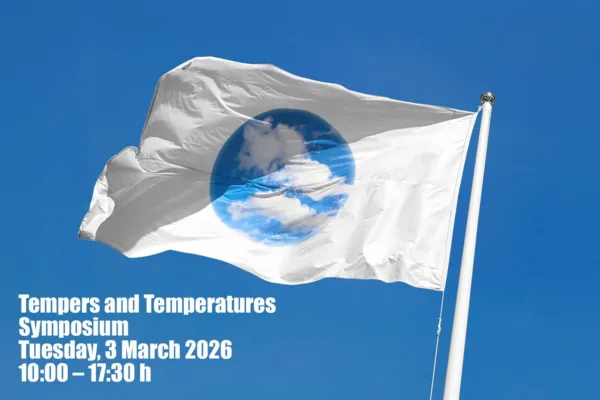European projects
The Royal Academy of Art, The Hague (KABK) collaborates with international partners on research projects, carried out within the EU on a regular basis.
International Credit Mobility
Once again MA Interior Architecture INSIDE teamed up with the faculty of fine arts & design of POLIS University. This time BA Photography also joined the project and gave a week workshop to ten students from POLIS University here at KABK. There were also staff exchanges to POLIS University and we welcomed some colleagues to KABK as well.
For the first time, BA Fine Arts and MA Artistic Research joined forces to work together with Birzeit University on this two-year project that would include staff and student exchange. Unfortunately, due to the ongoing war in Gaza the project was suspended.
In this project, the master's programme Interior Architecture INSIDE worked together with POLIS university. This project focused on teaching staff exchanges at both institutions. The project also included study exchange at the Royal Academy of Art (KABK).
The project with Novi Sad was led by the Photography departments of the two academies. During the project, several students from Novi Sad came to the Hague for an exchange at the Royal Academy of Art (KABK).
The Graphic Design department of the Royal Academy of Art (KABK) worked together with the Graphic Design department of Bezalel on this two-year project. Students from Bezalel did an exchange at the Royal Academy of Art. Staff exchanges included teaching mobility to both academies and training also took place at both academies.
Cooperation Partnerships
Climate Truth Crisis is an Erasmus+ Cooperation Partnership Project that brings together students and staff from seven art and design academies in the respective cities of The Hague, Reykjavík, Barcelona, London, Vilnius, Tallin and Sarajevo. This educational programme investigates the implications of climate change scepticism on democracy and public trust.
In particular, the aim is to develop practices that empower young designers to evaluate climate-related news and visualise the spread of disinformation. Information design, video and visual storytelling are deployed to engage publics in the impact of processes like industry lobbying, greenwashing, conspiracy theories and social media bots. The driving research question is: If democracy relies on assuming voters are well informed enough to make political choices, how might communication engage people in serious issues and help them sort news from fake news to effectively impact sustainable change?
Together with regional, environmentally engaged NGOs and scientists, Climate Truth Crisis provides a wide range of educational formats, along with teacher trainings, guest lectures and student workshops. The expected project results will include an online repository of project proceedings and resources, a glossary of relevant terms and topics on the spread of disinformation in relation to climate change, a research publication with project findings, and a series of podcast episodes on the themes, discussions and insights emerging from the project. Ultimately Climate Truth Crisis aims to create new knowledge through a cross-disciplinary, cross-cultural and cross-academic engagement.
The project explores the links between ecological sustainability and visual arts education – the aim is to find out how ecological issues should be addressed in art education. The approach is based on research, artistic work and close collaboration between partners. The main idea behind the project is to make the artistic process visible in the development of art education approaches.
Plastic Justice is a European educational collaboration between five art and design academies in The Hague, Reykjavík, Barcelona, London and Vilnius. Together with regional environmentally engaged NGOs and scientists, the educational programme, including a conference, exhibition and website, focusses on the long-term impact of invisible micro-plastics on the human body. Plastic Justice aims to create new knowledge through cross-academic exchange and field-research promoting conscious design education for an upcoming generation.
Plastic Justice is funded by the Strategic Partnership programme of the European Union. Participating schools are: the Royal Academy of Art in The Hague, Iceland University of the Arts in Reykjavík, Elisava in Barcelona, Central Saint Martins (UAL) in London and Vilnius Academy of Art together with ELIA – European League of Institutes of the Arts.
For more detail information on the Plastic Justice project go to www.plasticjustice.eu
International Networks
Platform Internationalisation ELIA is a platform for discussion, cooperation and guidance for institution’s approach to internationalisation.
PIE is mainly a platform for sharing knowledge on implementing the different facets of internationalisation within higher arts education institutions.
PIE is open to policymakers, deans and heads of internationalisation, teachers and other staff members of ELIA Member Institutions who are researching, advising on, and making strategies and policies. PIE is initiated by ELIA thanks to Aparajita Dutta (KABK) and Thomas Greenough (GSA) with the aim of establishing a grassroots group involved in researching and implementing internationalisation in higher arts education institutions.
ETHO is a network of higher art education technical staff. Established in 2016, their aim is to advance hands-on learning and innovation in all artistic disciplines through an inclusive community.
Initial initiative was taken by Royal Academy of Art, The Hague (KABK), Royal College of Art London and Willem de Kooning, Rotterdam.
Since 2019 ETHO is cooperating with ELIA.
ECCITE seeks to bring together leaders, practitioners and educators whose focus is transition learning. This may be between school and higher education, between school and employment, between school & society, between vocational education and general education for the creative industries.
Through this network the purpose is to engage with education in the 21st century through knowledge exchange, development of international understanding and platform to collaborate on innovative & sustainable responses to issues identified.
Affiliations
The Royal Academy of Art, The Hague (KABK) is a member of the international network of leading art schools, the ‘Cumulus International Association of Universities and Colleges of Art, Design and Media’. This association provides opportunities for projects, among other things.
ELIA is a globally connected European network that provides a dynamic platform for exchange and development in higher arts education. It represents more than 280 members in 54 countries, across all art disciplines. ELIA advocates for higher arts education by creating new opportunities for its members and facilitating the exchange of good practice. ELIA realises its aims by organising events, forming cross-membership working groups, participating in research projects, and producing policy papers addressing topical issues.
Student and staff exchange projects, where each participating school hosts a project week in their city.
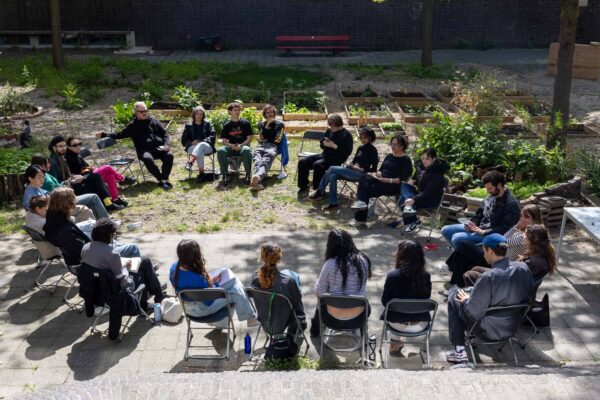
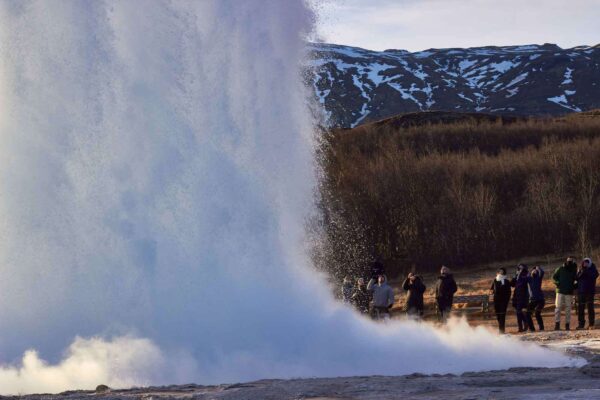
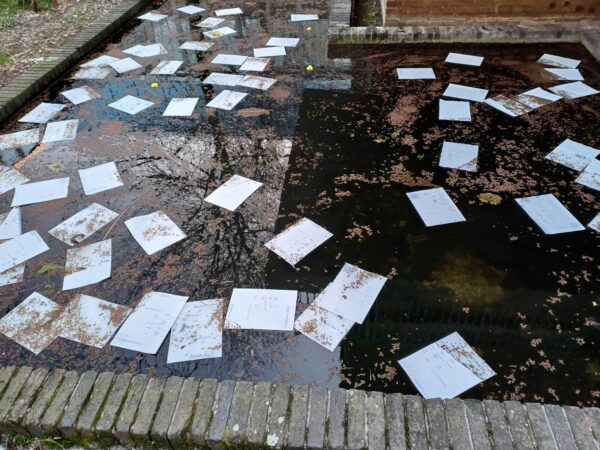
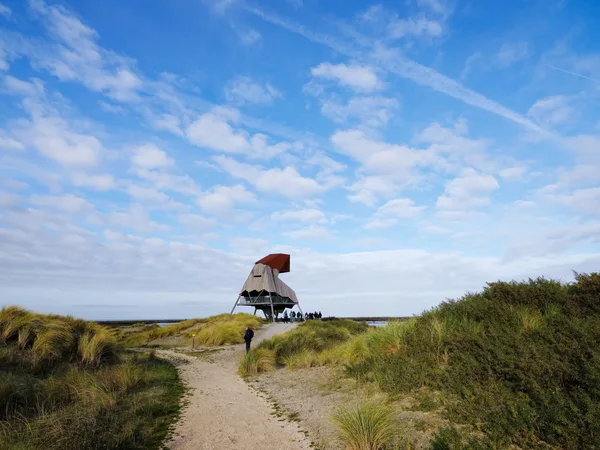
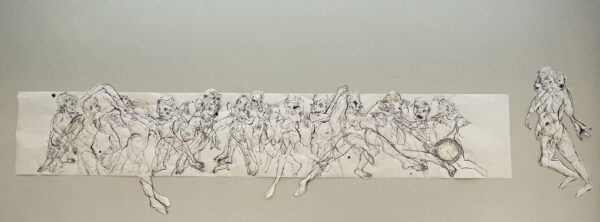

Funded by the European Union.
Views and opinions expressed are however those of the author(s) only and do not necessarily reflect those of the European Union or Nuffic. Neither the European Union nor the granting authority can be held responsible for them.
Questions?
Contact?
For more information and questions please contact Aparajita Dutta, Head International Office via international@kabk.nl
